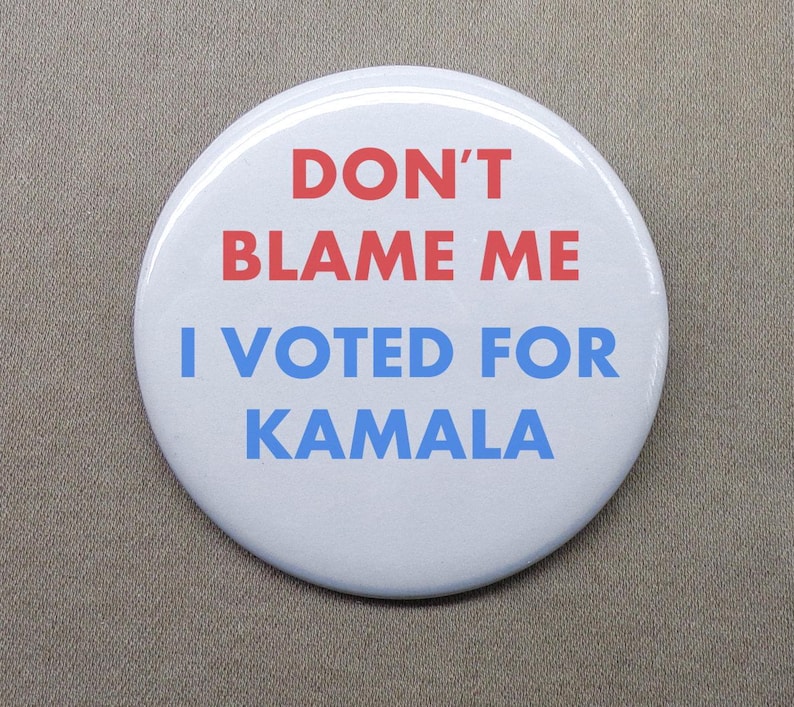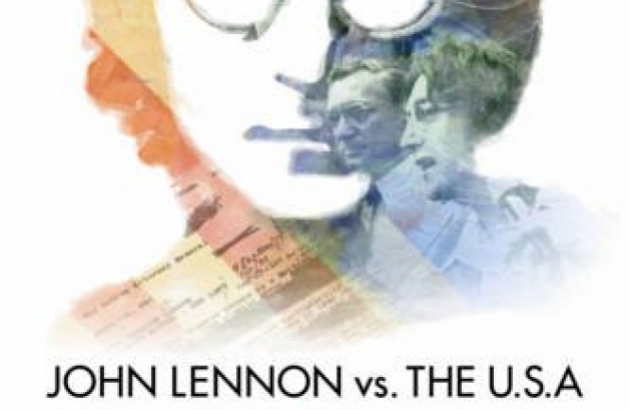* * * *

* * * *
Welcome to the “Georgia Wasp…”
This blog is modeled on the Carolina Israelite. That was an old-time newspaper – more like a personal newsletter – written and published by Harry Golden. Back in the 1950s, people called Harry a “voice of sanity amid the braying of jackals.” (For his work on the Israelite.)
That’s now my goal as well. To be a “voice of sanity amid the braying of jackals.”
For more on the blog-name connection, see the notes below.
In the meantime
December 29, 2025 – With the end of the year coming up – and what a year it’s been – I’m taking a break from posting on my last-August hike on England’s Canterbury Trail. To meditate on some year-end odds and ends: For starters, the fact that I’m coming to the end of an era.
On December 31, the Atlanta Journal-Constitution will stop printing its physical newspaper. From then on it will go “completely digital.” But that doesn’t just mark a dramatic change for the AJC, a “storied newspaper that was founded just a few years after the end of the Civil War.” It marks the end of an era, the end of my immediately turning to the right after going into the south-Fayetteville (GA) RaceTrac. That’s where I go pretty much every morning to get my “flavor to taste” iced coffee. But before getting the iced coffee I used to turn right immediately after entering, to the newspaper racks, where I’d “check out the State of America.”
Which is being interpreted: In the days, months and years leading to the 2024 election, each morning I’d religiously check out the AJC – with other papers on the rack – for signs of how the election would turn out. Along with things like gas prices, I’d scan the headlines for news of endorsements, mass shootings, Trump fatigue; all the modern-day attempts at entrail reading.
That’s all over now – or will be in two days – and for the time being USA Today and sometimes the Wall Street Journal will continue to show up in the RaceTrac paper rack. But I’ll miss the something personal in those local views on the national scene. (Especially the local-view stories about Marjorie Taylor Greene‘s apparent change of heart.)
* * * *
And speaking of the national scene, I’ve been wondering most of this year: “What’s with the Supreme Court giving this president a free pass to gut the Constitution?” As an ex-lawyer and a student of history I understand that the one thing the Founding Fathers did not want was a too-strong Chief Executive. (In their case King George III.) And since six of the nine justices call themselves conservative – if not Originalist – they should have been first in line to say “you can’t do that!” (Under our system of Checks and Balances in the Constitution.) So, what gives?
Here’s my personal – possibly stupid – opinion on the matter. (But what the heck. This year has seen lots of people share their stupid opinions without bothering to check for truth or accuracy.) Personally, I think maybe the Court doesn’t want to force a showdown they’re afraid they’d lose. (Mostly because the Founders never dreamed we’d have a president willing to ignore the Court, if not the Rule of Law.) That is, they may not want to force a showdown yet.
I’m thinking it may be like Sam Houston retreating and retreating and retreating, despite constant pleas from officers and men to make a stand and fight. But he kept biding his time – and retreating – until finally he reached San Jacinto. And ended up destroying the Mexican army in something like 10 minutes. So maybe the Court is just playing for time, like wily Sam Houston.
* * * *
And third, a lesson I should have remembered but didn’t on my recent road trip up from the ATL to the Springfield (MA) Metropolitan Area. A lesson I thought I’d learned back in September 2023, as detailed in the post, More “gang aft aglay” – and luxury in Lyon! It had to do with how Google Maps can often send you through various side streets and back alleys, which may be marginally quicker but too often confusing and frustrating.
In September 2023 I had to navigate my way from Lyon Part-Dieu train station to the HO36 Lyon. (A very nice and luxurious hostel as it turned out.) Google told me to walk down Rue Marseille, then take a right on Rue Bechevelin until it angled over and met Rue Gilbert Dru, “and so on.” In other words, Google told me to take various side streets and back alleys, which was not at all quicker and was definitely confusing and frustrating. It took at least two hours* to get to the hostel, but the return trip to the station two days later took “a mere 22 minutes.”
For that return trip all I had to do was head out Rue Montesquieu to Rue Marseille, then take that street up to the McDonald’s where it meets Rue Paul Bert. Then take Rue Paul Bert all the way to the station. “You can’t miss it.” So, what’s the lesson I should have remembered – and applied – during my recent road trip up to Massachusetts? Simple. Find one or two, or at most three, good through-roads and stay on them. But that’s not what I did.
Here’s what did happen. I left Winchester (VA) at 7:00 a.m. and made good time until I got to the Sam’s Club in Middletown (NY) for gas and a bladder break. (Leaving Virginia, all through Pennsylvania and most of New York gas prices are ridiculously high.) From there I would normally take New York’s Taconic State Parkway up to where it connects with U.S. Route 20 in Massachusetts. Route 20 does go through a number of small towns, but I’m familiar with it, plus the Taconic Parkway is only open to passenger vehicles. (No big-ass semi-trucks allowed.)
Which is what I should have done. But it was 2:00 in the afternoon and Google said it was only two hours the whole way to Springfield, so I figured I should be able to stay on I-84 and get through Danbury and Hartford without the usual before-and-after 5:00 traffic. Bad mistake. There was a massive traffic jam just as I approached Danbury; so bad I opted to take the side roads up. I clicked on the Google Map “Avoid highways” option and set out.
Bad mistake. Once again, I discovered that Google Maps will send you on what it thinks is the quickest way, but too often turns out to be – wait for it – “definitely confusing and frustrating.” Looking back, once I’d reached Westfield and familiar territory – it’s on US 20 and close to Springfield – I saw that I should have just taken U.S. Route 202 and stayed on it. It might have been marginally longer but definitely not as frustrating as it turned out to be.
What I remember was trying to follow Google directions in the dark – the sun disappeared by 4:30 – while negotiating twist-and-turn side roads and metaphoric back alleys, surrounded by close-in forbidding pitch-black woods and followed – inevitably and disturbingly close* – by impatient locals who knew the roads and how to get where they wanted. And took turns tag-teaming me – one car would turn off but another soon took its place – “just to piss me off.”
So, here’s to a 2026 where we don’t keep making the same mistakes over and over again.
* * * *

* * * *
The upper image is courtesy of Year End Reflection Image 2026 – Image Results.
Re: Entrail reading. See Haruspex – Wikipedia, on the “form of divination called haruspicy, the inspection of the entrails[c] of sacrificed animals, especially the livers of sacrificed sheep and poultry.” Also, “At the most influential time of haruspicy, the Roman senate decreed that ‘a certain number of young Etruscans’ should be instructed in it to provide haruspices for the state.[9] These Etruscans were later appointed as Roman augurs.”
On the Founders fear of another monarch, see The Other Fear of the Founders – The Atlantic (“The founding generation’s fear of demagogues is well known. Alexander Hamilton insisted on the problem in Federalist No. 1: “Of those men who have overturned the liberties of republics, the greatest number have begun their career by paying an obsequious court to the people; commencing demagogues, and ending tyrants”); Why Did Our Founding Fathers Originally Not Want a Strong Government, let alone a Chief Executive with too much power (“The Founding Fathers’ direct experiences under British rule significantly influenced their desire to limit central governmental power. They witnessed the dangers of unchecked authority through grievances like taxation without representation (e.g., Stamp Act of 1765, Sugar Act of 1764) and the quartering of troops”); and Nation’s founders pushed against ‘elected king’ when framing presidential powers (“the founders all looked at history in order to not repeat the same mistakes they thought had led to the absolute rule by king they opposed, holding to the concept that “no man is above the law”).
On Sam Houston see The Battle of San Jacinto: Sam Houston’s Stunning Victory.
“Two hours to get to the hostel.” For that overseas trip I didn’t have phone-service Google. I printed out paper maps but not the right one as it turned out, as explained in the “Gang aft aglay” post. Meaning I had to try and memorize the Google-Map instructions – and wasn’t too successful.
Disturbingly close. As in, “With you that close behind me, are you gonna buy me dinner, or at least a drink?” (Let the reader understand.)
The lower image is from my “Lost in Lyon” post.
* * * *
Re: The Israelite. Harry Golden grew up in the Jewish ghetto of New York City, but eventually moved to Charlotte, North Carolina. Thus the “Carolina Israelite.” I on the other hand am a “classic 74-year-old “WASP” – White Anglo-Saxon Protestant – and live in north Georgia. Thus the “Georgia Wasp.”
Anyway, in North Carolina Harry wrote and published the “israelite” from the 1940s through the 1960s. He was a “cigar-smoking, bourbon-loving raconteur.” (He told good stories.) That also means if he was around today, the “Israelite would be done as a blog.” But what made Harry special was his positive outlook on life. As he got older but didn’t turn sour, like many do today. He still got a kick out of life. For more on the blog-name connection, see “Wasp” and/or The blog.
* * * *
















